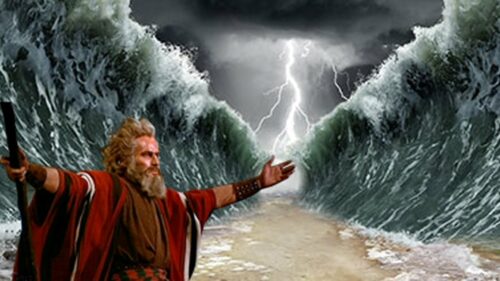Friday, March 10, 2023
(click here to listen to or read today’s scriptures)
The name of action
Here is a parable: There was a landowner who planted a vineyard, put a hedge around it, dug a wine press in it, and built a tower. Then he leased it to tenants and went on a journey.
Joe Zarantonello, retired from high school teaching, built Loose Leaf Hollow, a retreat center and home just outside Bardstown, Kentucky, a few miles from Gethsemani, where Thomas Merton spent 27 years as a writer and a monk.
Joe is a writer, and he posts an internet poem every Monday. This week his poem celebrated the Exodus and Hamlet, Shakespeare’s play concerning suicide and choosing life, among other things.
Dreaming of Moses and Hamlet
Moses and Hamlet sitting in a tree,
T-A-L-K-I-N-G….
First comes words,
then comes
bondage
Then comes Moses in the deep Red Sea
up to his nose
before it
parted
(“Yes, but…”
say you and me)
just as Hamlet sighed,
and never ever started… to really Be.
Everybody has the voice of
Moses and Hamlet
deep inside
How we dance with these
two archetypal
energies
will determine whether
we live a life of liberation or vacillation.
Moses didn’t hesitate, Hamlet did. To be or not to be. Moses tried to walk away when Yahweh’s words burned through the bush: “I CHOOSE YOU, MOSES!” After that his behavior took a definite turn toward obedience. He became assertive, even aggressive with his old friend the pharaoh. Then when the Red Sea stood in their way and chariots were riding hard toward the mass of panicked Hebrews on the shore, Moses stepped right into the water and the sea parted before him. (I know that’s not how the movie showed it!)
But Hamlet’s speech was just the beginning of his troubles. He could never make the turn toward decisive action and thus became cynical and bitter. Shakespeare must have empathized; he gave some of his most beautiful poetry to Hamlet’s soliloquy:
To die, to sleep – to sleep, perchance to dream – ay, there’s the rub: For in that sleep of death what dreams may come, when we have shuffled off this mortal coil? … Who would grunt and sweat under a weary life but that the dread of something after death, the undiscover’d country, from whose bourn no traveller returns, puzzles the will, and makes us rather bear those ills we have than fly to others that we know not of? Thus conscience doth make cowards of us all.
Shakespeare knows the danger of overthinking:
Thus the native hue of resolution is sicklied o’er with the pale cast of thought, and enterprises of great pith and moment … lose the name of action.
On the other hand, in most situations at least some thinking is required. The tenants in Jesus’ parable don’t seem to think at all, except for themselves. In their greed they ambushed and killed the servants sent to bring home the harvest. Twice, they did that! Then when the owner’s son showed up they killed him too.
The tenants were about to lose their own lives, all because they wanted a little extra wine. What were they thinking? And of course, what are we?
The Kingdom of God will be taken away from you and given to a people that will produce its fruit.
I keep crashing into God’s call to obedience, listening and humility. Those are catalysts for and results of what Moses called choosing life in Deuteronomy 30. Don’t overthink it. Just do it.
Choose life. Step in, and watch the parting of the sea.
(Genesis 37, Psalm 105, John 3, Matthew 21)
(posted at www.davesandel.net)
#
